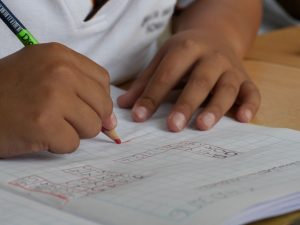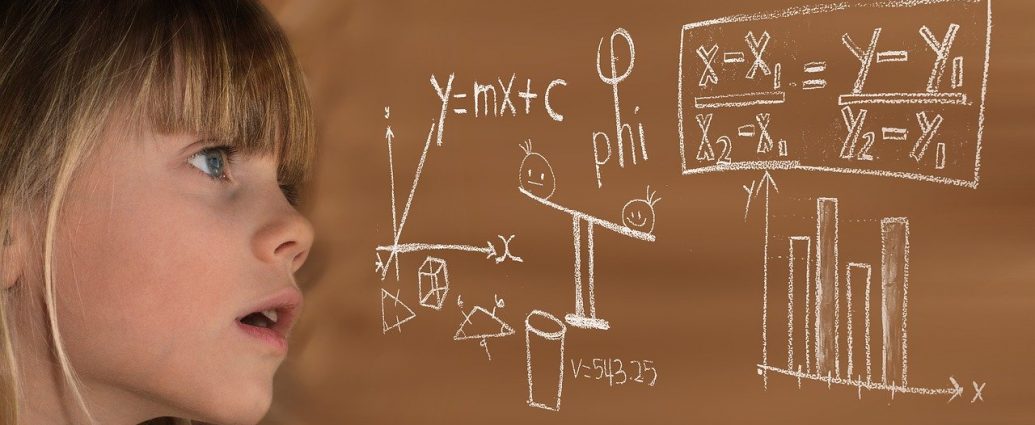If you notice that your child has permanent serious difficulties in finding solutions to arithmetic problems, Dyscalculia may be responsible. Learning disabilities can affect a child’s confidence. This can lead our children to major stress and anxiety. Dyscalculia is one of the learning disorders.
Generally, mathematics is difficult for many students. Some may be very slow learners, and they will learn the concepts through training and repetition. For some other children, learning mathematics can be stressful and emotional. Failure to pass the exams will result.
For children affected by weakness in mathematics, but, the challenge of dealing with mathematics starts with simple arithmetic skills. Because of their problems with basic arithmetic operations, children usually fail to imagine quantities and arithmetic processes.
What is dyscalculia?

Dyscalculia is a specialized learning disorder in which mathematical work is slow and inaccurate. Dyscalculia is a symptom of a child not being able to remember the basics about numbers. A child may look different from another child. For some, it can be difficult to find the answers to words, as others can. Some have difficulty understanding certain mathematical concepts. The speed at which each child learns lessons varies. While the average child has a delayed and significant gap in understanding mathematical concepts, common sense, and other skills, the child may be dyscalculic if he or she is not trained.
However, not every difficulty with arithmetic is automatically a sign of dyscalculia. Weakness in arithmetic is characterized by the fact that the affected child is fundamentally impaired in his arithmetic thinking. According to the World Health Organization classification, dyscalculia is “one of the limiting developmental disorders of school skills. Basic arithmetic skills are impaired in children with dyscalculia. These deficits cannot be explained by a lack of intelligence and related to inadequate schooling.” Are not (source: ICD 10, F.81.2).
How to identify Dyscalculia at an early age?
Children with dyscalculia find it difficult or difficult to understand simple math tasks. The following dyscalculia symptoms are noticeable in kindergarten age:
- Problems when comparing numbers (smaller and larger) and quantities (less or more)
- Increased errors when counting objects
- Incorrect allocation of quantities and numbers
- Errors in simple arithmetic tasks (addition or subtraction) despite visual material
- Uncertainty when estimating, even with small quantities
These problems become clearer in elementary school. Children often confuse arithmetic symbols, find no solution or use counting aids to calculate (e.g. finger counting).
There are profound difficulties in the following areas:
- Name and write numbers
- Counting and counting
- Decimal system) and place values ((“fifty-three” – 35, “two hundred five” – 2005)
- Meaning of zero
- Breakdown of word problems
- Estimation tasks
- Calculate with variables
- Mental arithmetic
- Dealing with quantity and measurement units
- Computational logic (principles and rules of mathematics)
Children with dyscalculia see numbers as meaningless words and cannot make sense of them. As a result, they often pass the numbers, when writing and reading aloud. Due to their lack of understanding of arithmetic steps, they tend to memorize solutions instead of developing them themselves. Besides, they do not internalize the results of simple arithmetical tasks (e.g. multiplication tables) and must always determine them again. In class, it becomes apparent that affected children need significantly more time to solve a task than their classmates.
Examination for Dyscalculia

Although indications of dyscalculia can already be seen in kindergarten, a diagnosis is usually made later. Dyscalculia is not an unusual problem. Studies assume that between 3 and 8% of all children and adolescents are affected by arithmetic problems (source: Federal Association for Dyslexia and Dyscalculia). In some research reports, it is also assumed that the learning disability occurs comparatively more frequently in girls.
The symptoms of dyscalculia vary with each child’s developmental stage. Researchers say genes and heredity are among the causes of dyscalculia, but the exact cause is yet to be discovered. No tests are available to diagnose dyscalculia. The condition is diagnosed in a series of interrelated assessments and tests.
Dyscalculia can also occur with other types of learning disorders. Specialists who specialize in teaching children with heterogeneity will conduct special tests to diagnose the condition. The child’s learning excellence will also be taken into consideration. Alternative learning methods can be used to help the child.
You can support children
With early support, your child will be able to achieve normal learning progress and overcome disadvantages. Through targeted support, your child’s skills can also be strengthened in everyday situations – for example when dealing with money or reading the time.
Parents should explain to the teacher about the child’s condition and seek help. The child should be supported in school. Give these children more time to write exams. Permission to use the calculator should be provided. Seek the help of a psychologist or counselor.
Compute math, toys, utensils, and household items. Recognizing the child’s tastes and abilities and encouraging him/her to resume activities that are of interest to the child, the child will have increased self-esteem and confidence.
Provide love, support, and security to children. We, as parents, need to try to make them aware of their difficulties.
It is important for parents and children to be aware that weakness in arithmetic can be managed with appropriate support. Help your child understand that his or her weakness in arithmetic is not related to their intelligence. As a parent, you don’t have to take on the role of a teacher, you have to increase your child’s confidence. Family support and understanding are crucial in relieving affected children of stress and pressure.
Conclusion
Even at kindergarten age, it can be recognized that children with poor math skills lack a basic understanding of numbers and quantities. Children also have problems in learning arithmetic in primary school. Dyscalculia inhibits learning processes that are responsible for the expansion of mathematical reasoning. If deficiencies in basic knowledge are finished, your child can overcome his arithmetic difficulties to the extent that he does not lose touch in the classroom. Targeted learning therapy aims to improve your child’s academic performance on the one hand.


1 Comment